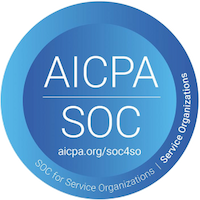In today's digital age, transferring money has become more streamlined and convenient. However, understanding the differences between various transfer methods can still be confusing.
We will clarify the differences between ACH payments and wire transfers, breaking down their unique features, benefits, and potential drawbacks.
What Are ACH Payments?
ACH (Automated Clearing House) payments are electronic transfers that move money between bank accounts through the ACH network. They are commonly used for direct deposits, bill payments, and other recurring payments.
This system is managed by the National Automated Clearing House Association (NACHA), and it’s designed to handle a large volume of relatively small transactions efficiently.
One of the main benefits of ACH payments is their low cost; banks usually charge minimal fees for these transactions, making them popular for everyday use.
Since ACH payments are processed in batches, they aren't instant but offer a reasonable balance between speed and cost. This makes them ideal for paying recurring bills, salaries, and online transactions like purchasing subscriptions.
ACH payments can be broken down into two types:
1. Direct deposits: Transactions like payroll, tax refunds, and government benefits that send money into an account.
2. Direct payments: Direct payments take money out from an account, such as for bill payments, mortgage payments, or other monthly subscriptions.
What Are Wire Transfers?
Wire transfers are a method of sending money directly from one bank account to another, usually for a single and immediate transaction. They are often used for large sums or international transfers and can be completed in a matter of hours.
Unlike ACH payments, wire transfers are not batched. Each wire transfer is an individual transaction monitored throughout its journey. This means they are fast and generally pose lower risks of fraud due to constant scrutiny.
Typically, wire transfers are used for urgent and high-value transactions, such as real estate purchases, large business payments, or sending money to relatives abroad. However, their speed and security come at a cost; wire transfers usually involve significant fees.
Wire transfers can be domestic or international. Domestic wire transfers typically complete on the same business day, while international wire transfers might take a few days, depending on the destination country's banking practices.
ACH vs. Wire Transfers: Key Differences
1. Speed of Transactions
- Wire Transfers: Known for their speed, wire transfers typically complete within the same day, often within hours. This makes them ideal for urgent, high-value transactions, such as purchasing real estate or completing large business deals.
- ACH Payments: ACH transactions usually take 1-3 business days to process. This slower processing speed is ideal for recurring payments, like payroll or utility bills, where immediate delivery is not crucial. The ACH system batches transactions, which contributes to the delay.
2. Cost of Transfers
- Wire Transfers: Wire transfers often involve higher fees, especially for international transactions. These fees cover the cost of the security and immediacy provided by wire services. Fees can vary widely, with international wires being the most expensive due to cross-border banking complexities.
- ACH Payments: ACH transfers are generally low-cost or free, making them the preferred option for routine, repetitive transactions. This cost-efficiency makes ACH payments popular for businesses managing payroll, monthly bills, or vendor payments.
3. Security Considerations
- Wire Transfers: Wire transfers are typically considered more secure due to their direct and immediate nature. Since wire transfers are processed individually and often involve real-time verification, they add layers of protection, especially for large or urgent transactions.
- ACH Payments: While also secure, ACH systems use encryption and security protocols to safeguard transactions, making them safe for regular, lower-value payments.
Choosing the Right Method
The choice between ACH and wire transfers depends on the urgency, cost considerations, and security needs of the transaction. For fast, high-value transactions, wire transfers are the preferred option. For routine, cost-sensitive transactions, ACH payments provide a reliable and affordable alternative.
Both methods are safe and have their unique strengths, so businesses and individuals should select the one that best meets their specific needs.
If you're looking to simplify and optimize your accounts payable process, CashCloud can help you leverage the efficiency of ACH payments. Book a Demo today!






.jpg)
.jpg)



%201.svg)


%201.svg)

%201.svg)
%201.svg)
%201.svg)

